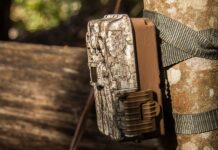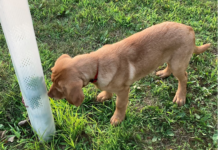SALEM, Ohio – A cow tested “inconclusive” last week for the brain-wasting disease bovine spongiform encephalopathy (BSE), the USDA announced June 25.
Additional testing can take up to a week, however as of press time, those results were not announced.
Inconclusive. “The inconclusive result does not mean we have found another case of BSE in this country,” said John Clifford, deputy administrator for Animal Plant Health Inspection Service’s Veterinary Service Program.
“Inconclusive results are a normal component for most screening tests, which are designed to be extremely sensitive so they will detect any sample that could possibly be positive,” he said.
Clifford said he expected inconclusive results but could not comment on how many false positives were normal.
According to the USDA, the meat did not enter the food chain and the carcass is being held.
Unless test results come back positive, the USDA will not comment on where the animal was from, its age or whether it was dairy or beef.
Steps are being taken to identify the animal in case tests confirm BSE, Clifford said.
Rapid response. The USDA began rapid screening tests in response to the country’s first case of BSE last year.
This is the first inconclusive result since the testing began June 1. Seven thousand animals have been tested so far, according to the USDA.
“If we test 268,000 animals in the next 12 to 18 months, which we are fairly well on track to do, we will be able to find the disease if it occurs in as few as one in 10 million adult cattle with a 99 percent confidence level,” Clifford said.
“In other words, our program could detect BSE even if there were only five positive animals in the target population in the entire country,” he said.
A working system? A cow testing inconclusive is a sign the system and tests are working, said J. Patrick Boyle, president of the American Meat Institute.
“Regardless of whether the final test confirms negative or positive, however, the food supply remains safe because BSE has never been found in the meat we eat,” Boyle said.
National Cattlemen’s Beef Association Chief Executive Officer Terry Stokes agrees.
“Even in the event that this inconclusive test is confirmed, top scientists, government experts and food industry leaders agree that U.S. beef will remain safe and that the risk of BSE to humans is near zero,” he said.
Trade concerns. One concern, however, is how this news will affect trade.
Japan, the largest buyer of U.S. beef exports, stopped accepting beef from the United States after December’s BSE case.
Although other countries have reopened their border to U.S. beef, Japan refused, saying it wanted all cattle tested for BSE.
Clifford, however, said he did not think the inconclusive test would affect trade with other countries.
“We’ve been in contact with our major trading partners with this issue,” Clifford said. “They understand what we’re doing here with the screening tests, and so they’re familiar also with these types of tests themselves.”
Get 4 Weeks of Farm and Dairy Home Delivered









